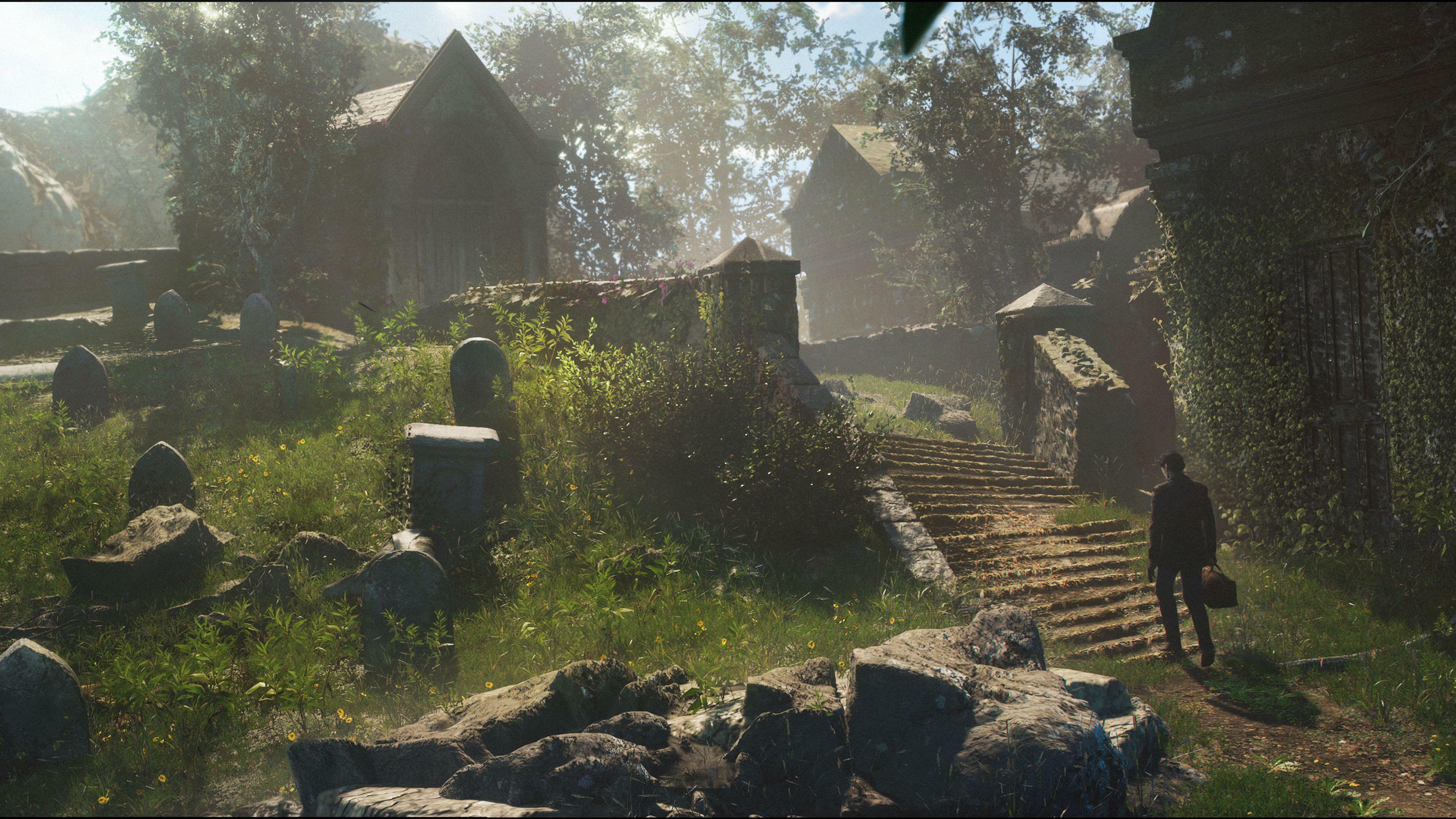Sherlock Holmes Chapter One invites players to explore the early days of the renowned detective, setting the stage for an intriguing narrative filled with mysteries and challenges. Step back into the shoes of the world’s greatest detective during his formative years, and immerse yourself in a vibrant world brimming with possibilities for detective work and character development. Within this review, we’ll explore the strengths and weaknesses of the game, delve into its captivating plot, assess its system requirements, and ultimately offer a comprehensive rating for this standalone detective venture.
Join us as we uncover the game’s artistic brilliance, from its immersive open-world environment to the meticulous detail that captivates players at every turn. Whether you’re a seasoned detective game aficionado or a newcomer to the franchise, you’ll discover how this game reshapes the narrative canon of Sherlock Holmes through an engaging mix of storyline and mechanics. This review aims to equip you with the necessary insight to decide if this title is your next digital mystery to solve.
Prices for Sherlock Holmes Chapter One
Plot and Intrigue in Sherlock’s World
Set against the backdrop of the vibrant Mediterranean island of Cordona, Sherlock Holmes Chapter One reimagines the iconic detective’s formative years. Tasked with uncovering the truth behind his mother’s mysterious passing, a young Sherlock returns to his childhood home, accompanied by his only true friend, Jon. This journey marks a pivotal time in the detective’s life, where personal histories and secret motives weave into an intricate tapestry of suspense.
The game’s narrative thrives on exploration and deduction, encouraging players to use their wits and intuition to solve various mysteries strewn across the island. As Sherlock delves deeper into Cordona’s societal fabric, he faces moral challenges that question his own beliefs and methods, setting the foundation for the legendary detective he is destined to become. The plot not only incites curiosity but also compels introspection, making it an enthralling experience for those who embark on this mystery-laden adventure.
Innovative Gameplay Mechanics
Sherlock Holmes Chapter One introduces players to an open-world experience that is both intuitive and engaging. The game’s mechanics emphasize the iconic detective’s observational skills and deductive reasoning, allowing players to piece together clues using the powerful ‘Mind Palace’ feature. This feature lets you analyze gathered evidence to come to different conclusions, making every decision impactful and encouraging replayability. Players familiar with detective games will find the mechanics innovative, particularly with the blend of interrogation, exploration, and immersion in a fully realized world.
Novices and veterans alike will appreciate the game’s learning curve, which smoothly transitions from simple tutorial missions into more complex, multifaceted investigations. The gameplay stands out from other adventure titles due to its focus on non-linear storytelling and a freedom of choice rarely seen in genre counterparts. With a dynamic disguise system and environmental interactions, the game provides numerous layers of interactivity, keeping players consistently engaged and challenged as they unravel each case.
Visuals and Their Impact
Sherlock Holmes Chapter One sets itself apart with its stunning visual design that captures the essence of the island of Cordona. The game boasts an impressive level of detail in both its characters and environments, providing players with an immersive experience that feels both fresh and authentic. The vibrancy of the Mediterranean landscape is complemented by a variety of meticulously crafted locations—from opulent estates to bustling markets—each filled with rich details that encourage exploration.
Comparatively, the graphics rival those of top-tier adventure titles in the genre, pushing the boundaries with high-quality textures and realistic lighting effects. The attention to detail in character animations further enhances storytelling, contributing to the overall ambiance and atmosphere of the game. While other detective games may focus heavily on narrative or puzzle-solving, Chapter One succeeds in marrying these elements with cutting-edge visuals, offering a truly captivating experience that is visually on par with contemporary gaming standards.
Standout Features of Chapter One
One of the most compelling features of Sherlock Holmes Chapter One is its emphasis on player autonomy and narrative depth. Unlike many detective games that offer a linear path, Chapter One allows players the freedom to explore multiple cases simultaneously, providing a sense of ownership over the narrative direction. The ‘Mind Palace’ is a standout feature, allowing players to actively engage in combing through collected clues, formulating theories, and drawing nuanced conclusions that impact the story’s outcome.
Additionally, the game’s dynamic disguise system sets it apart, offering unique gameplay experiences by enabling players to adapt their approach depending on the context. Unlike other titles where disguises may simply enhance visual variation, here, they are integral to solving puzzles and accessing new areas. Furthermore, the richly detailed open-world environment provides an expansive playground for exploration, complete with interactive NPCs and side missions. These elements collectively push Chapter One to the forefront of detective games, offering a sophisticated and varied experience that few others in the genre can match.
Drawbacks and Missed Opportunities
While Sherlock Holmes Chapter One excels in many areas, it is not without its shortcomings. Some players have noted that the complexity and non-linear nature of cases might occasionally lead to confusion, with a lack of clear guidance resulting in moments of frustration. This can be particularly troublesome for players not accustomed to open-world exploration, potentially impacting their overall gaming experience.
Additionally, while the story is rich and engaging, the pacing can occasionally falter, with some narrative arcs feeling either rushed or excessively prolonged. There are also instances where certain supporting characters lack depth, making their interactions with Sherlock less impactful. Minor bugs and performance issues have been reported as well, which could detract from the otherwise immersive atmosphere. These aspects highlight areas where developer improvements could elevate the overall polish of the game.
System Requirements and Performance Insights
To fully enjoy the intricate and visually rich world of Sherlock Holmes Chapter One, understanding its system requirements is key. The game is designed to offer both visual appeal and fluid performance, provided that the hardware meets the specified needs. Below is a table detailing the minimum and recommended system requirements:
| Component | Minimum Requirements | Recommended Requirements |
|---|---|---|
| OS | Windows 10 (64-bit) | Windows 10 (64-bit) |
| Processor | Intel Core i5-6600 / AMD Ryzen 5 2600 | Intel Core i7-6700 / AMD Ryzen 5 3600 |
| Memory | 8 GB RAM | 16 GB RAM |
| Graphics | NVIDIA GTX 960 4GB / AMD Radeon R9 380 4GB | NVIDIA GTX 1070 8GB / AMD Radeon RX 5600 XT |
| DirectX | Version 11 | Version 12 |
| Storage | 45 GB available space | 45 GB available space |
Performance-wise, the game runs smoothly on setups that meet the recommended specifications, delivering an optimal balance of high frame rates and stunning graphics. On minimum systems, players might experience lower graphic fidelity and occasional frame drops, particularly in densely populated areas or during graphically intensive scenes. For the best experience, particularly with higher graphic settings, a mid to high-end gaming rig is advisable to avoid performance bottlenecks and ensure an immersive detective experience.
Community Feedback and Impressions
Player feedback for Sherlock Holmes Chapter One has been a mix of praise and constructive criticism, reflecting a diverse range of experiences. Enthusiasts of the detective genre have largely appreciated the game’s fresh take on Sherlock’s early years, while some have pointed out areas for improvement.
Here are a few snippets from the community:
“The open-world exploration is a game-changer for Sherlock adventures, making every discovery feel personal and earned.”
“While I love the detective work, the occasional bugs can pull you out of the experience, especially during critical story moments.”
“The visuals are stunning, and the island of Cordona is a character in itself, but I wish some of the character interactions were more engaging.”
“I’ve enjoyed piecing together cases, though the lack of clear direction sometimes makes it easy to feel lost.”
Overall, the community acknowledges the game’s attempt to innovate within the genre, noting both its successes and the opportunities for future updates.
Final Verdict: A Promising Mystery Adventure
Sherlock Holmes Chapter One crafts a compelling narrative journey that both respects the legendary detective’s origins and pushes the boundaries of traditional adventure games. By merging immersive open-world exploration with complex case-solving mechanics, it sets a high bar for storytelling and player engagement. The game’s standout features and visual achievements make it a notable entry in its genre, despite some pacing challenges and technical issues. For players ready to embrace the mystery and navigate its world with discernment, Chapter One offers a rewarding glimpse into the formative years of a timeless character. Whether you are a die-hard fan of detective stories or simply seeking a richly atmospheric gaming experience, this title is a mystery worth solving.









